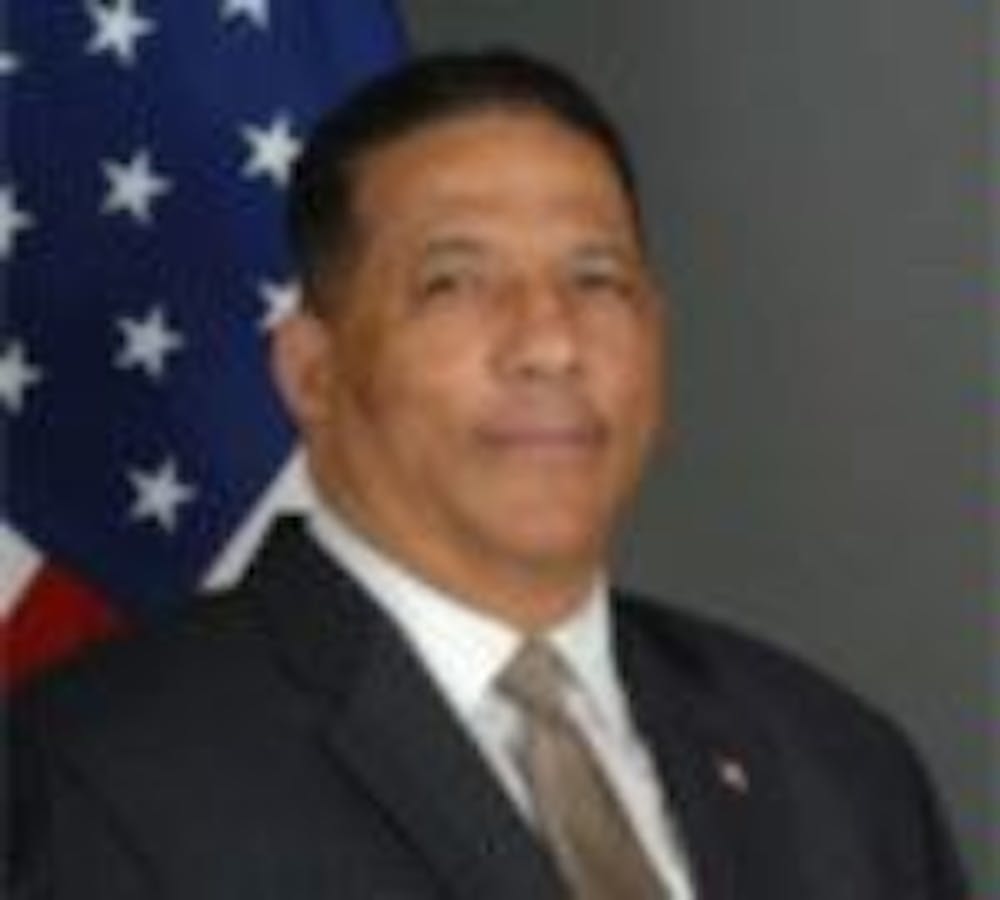AUBURN, Ala (EETV) - Former United States Ambassador to the African Union Dr. Michael Battle spoke to students, faculty and staff members at Auburn University’s Ralph Brown Draughon Library Tuesday. The lecture was organized by the College of Liberal Art’s School of Communication and Journalism and Africana Studies Program.
Battle discussed his role as the United State’s primary representative to the African continent, talking about some of the many programs and policies he was involved with during his career there.
“It was an exceptional opportunity for me when I served for four years as the United States Ambassador to the African Union,” said Battle, “and for three years concurrently as the United States Permanent Representative to the United Nations Economic Commission for Africa.”
Battle began his discussion by talking about the ways in which Ethiopia has become the de facto capital city of Africa in part because of the presence of the African Union headquarters.
“The fact that these three pan-African organizations have their joint secretariat in Addis Ababa, Ethiopia is what makes Ethiopia the undisputed diplomatic capital of the African continent,” said Battle.
Battle also discussed some of the ways he worked to build new relationships and strengthen existing ones between the United States government and many African nations. As ambassador, Battle worked with and represented many different United States governmental entities.
“As the United States Ambassador to the African Union, my role was to demonstrate the deep commitment of the United States government and of the people of the United States,” said Battle, “to the development, strength, prosperity, peace, health and growth of the African continent.”
The lecture also focused on some of the ways the United States has worked to form more stable, long term partnerships with governments and organizations in Africa.
“Since 2006 the U.S. and the African Union have developed a strong partnership working to foster a more stable, democratic and prosperous environment on the African continent,” said Battle.
Battle also mentioned how he worked with other political leaders in Washington D.C. to help build support for and promote the African continent. Battle also coordinated with officials to promote new policies aimed at helping improve relations with African nations.
“As the president’s personal representative to the AU, I sought to clearly articulate the policy position of the United States as it relates to the African continent,” said Battle. “It is for this reason that I was extremely pleased with President [Barack] Obama after extensive interagency engagement, published a Presidential Policy Directive on the African Continent,” stated Battle.
Additionally, Battle talked about ways in which he worked with other non-African nations, such as China, in helping to build diplomatic relationships with African countries. Battle also emphasized his view that the United States must work to partner with other nations such as China when it comes to diplomatic work in Africa.
“We in isolation cannot fill the void that China is willing to fill,” said Battle, “so I think partnership with China is more necessary than anything else.”
The former ambassador also discussed how Africa needs to be viewed more as one continent instead of being viewed by region.
“The first challenge I think is the division,” said Battle.
Battle discussed the ways in which the United States set the standard for diplomatic relationships with the African Union that other nations are starting to emulate.
“China is now opening an embassy in Addis Ababa exclusively to serve the African Union,” said Battle, “they followed us, we did it first.”
Battle challenged students in the audience, especially those going into media fields, to consider working with others in developing nations during their future careers.
“Those of you who are going to become leaders of the U.S. press and wherever it is,” said Battle, “partner with somebody in a developing nation who is a member of the press.”







